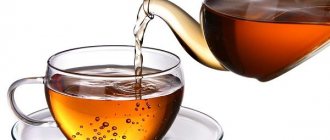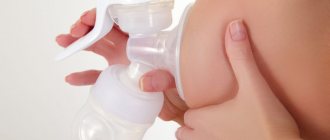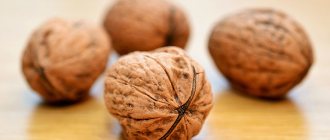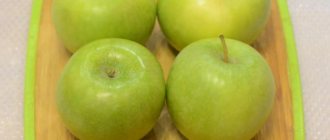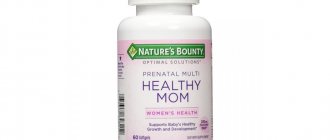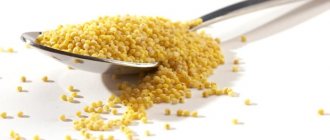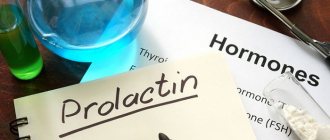What kind of water is this?
Pharmaceutical dill water is an extract of fennel seeds (pharmacy dill) or essential oil of the plant. The solution is sold in glass bottles (volume from 15 to 100 ml). Contains seed extract and distilled water. The main purpose of the drug is to normalize the functioning of the digestive tract.
also buy herbal tea from seeds ground into powder at the pharmacy . The package includes 10 or 30 filter bags.
You can prepare dill water yourself. Fennel or dill seeds are used.
Is it possible to drink dill seeds during pregnancy?
In order for the use to benefit the body, it is necessary to give dill seeds to pregnant women, observing the dosage. Before using the product, you should study the list of contraindications and consult with your doctor.
Moderate and proper consumption of dill seeds has a beneficial effect on the health of the expectant mother and fetus. Thanks to the vitamins, essential oils, macro and microelements they contain:
- Additional nutrients enter the body;
- A healthy appetite appears;
- Metabolism is normalized;
- The intestinal microflora is preserved;
- Regular and delicate removal of waste products is ensured;
- The choleretic and diuretic processes are enhanced;
- Kidney function is stimulated;
- Infectious agents are destroyed;
- Harmful and toxic substances are removed from the body;
- With hypertension, blood pressure decreases;
- Increases resistance to stress, calms the nervous system;
- The walls of blood vessels are cleansed, rhythmic blood flow is ensured;
- The heart muscle is strengthened.
Can and should it be taken while breastfeeding?
Breastfeeding women are recommended not only to enrich their diet with fresh dill, but also to take dill water. The product brings great benefits to the mother's body :
- supports lactation, stimulates breast milk production;
- removes harmful accumulations from the vascular bed and intestinal tract;
- has a mild laxative and diuretic effect, prevents constipation and swelling;
- promotes weight loss in the postpartum period;
- restores the cyclicity of menstruation;
- relieves excess gas formation and spasmodic pain in the intestines.
Useful properties of the plant
Dill, with its extremely low calorie content (40 kcal), is a real storehouse of vitamin C - as much as 100 mg per 100 g of product, which is not found in either lemon or any other citrus fruit. Dill is equally rich in vitamin A and its related beta-carotene. Vitamins E, B9, B6, B5, B2, B1 and PP are contained in smaller quantities. Among the minerals, this plant boasts an abundance of manganese, calcium, magnesium, copper, potassium and phosphorus.
Medicinal properties include:
- Prevention of diseases of the cardiovascular system, normalization of blood pressure in hypertensive patients.
- Improved digestion and metabolism (achieved by an abundance of fiber).
- Diuretic effect (used in the treatment of cystitis).
- Bactericidal action.
- Wound healing effect.
- Expectorant effect (treatment of tracheitis, bronchitis, cough).
- Dill is used to enhance lactation after childbirth.
Benefits for babies
Dill water is beneficial for the body not only of a nursing mother, but also of a baby (read more about dill water for children here). It not only stimulates lactation, but also enriches breast milk with bioactive substances necessary for the full development of the child’s body. A baby consuming milk enriched with vitamins and minerals does not experience a deficiency of nutrients and develops correctly and actively.
The water also contains substances that, when introduced into a child’s body, eliminate colic and constipation and normalize the functioning of the infant digestive tract.
Chemical composition
The chemical composition of dill water is almost similar to dill seeds . However, it is better absorbed, so its therapeutic effect is more pronounced. The water contains a large number of bioactive substances that benefit the body of the mother and baby:
- essential oils that have a tonic and carminative effect;
- phytoncides, carotenoids, flavonoids that have an antioxidant effect.
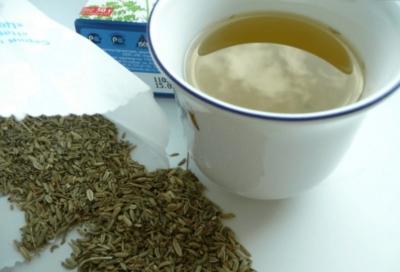
Of the vitamins it should be noted:
- ascorbic acid (C) – 0.3 mg per 100 g of solution (0.3% of the daily intake);
- thiamine (B1) – 6 mcg (0.4%);
- riboflavin (B2) – 4 mcg (0.2%);
- niacin (B3) – 0.04 mg (0.2%);
- pyridoxine (B6) – 4 mcg (0.2%).
The mineral composition is presented:
- potassium – 17 mg per 100 g of drink (0.7% of the daily value);
- calcium – 27 mg (2.7%);
- iron – 0.2 mg (1.4%);
- magnesium – 5 mg (1.2%);
- phosphorus – 4 mg (0.5%);
- zinc – 0.08 mg (0.6%);
- selenium – 0.2 mcg (0.3%);
- manganese – 0.03 mg (1.4%);
- copper – 12 mcg (1.2%).
Read about the chemical composition of dill water, benefits, harms and use for adults and children here.
Indications for use
For breastfeeding women, dill water is indicated as a means for:
- relief from constipation and bloating during the postpartum period;
- normalization of the body's condition after pregnancy;
- stimulating the production and improving the release of breast milk;
- preventing milk stagnation and inflammation of the mammary glands.
The mother can not only drink water herself, but also give it to the baby from the second week of life for:
- removal of gases from the intestines;
- easing pain caused by colic;
- strengthening the child’s immunity;
- easy cleansing of the children's intestinal tract without affecting healthy microflora;
- stimulation of the synthesis of digestive enzymes.
Main properties of fennel
Many people grow fennel specially; most housewives use its stems as a seasoning for various dishes. However, not all nursing mothers know about the benefits of the plant’s fruits during breastfeeding.
It is worth noting that fennel and dill are completely different plants, which are only superficially similar to each other, but differ in chemical composition and properties. In addition, fennel has an aniseed aroma, a sweeter taste than dill.
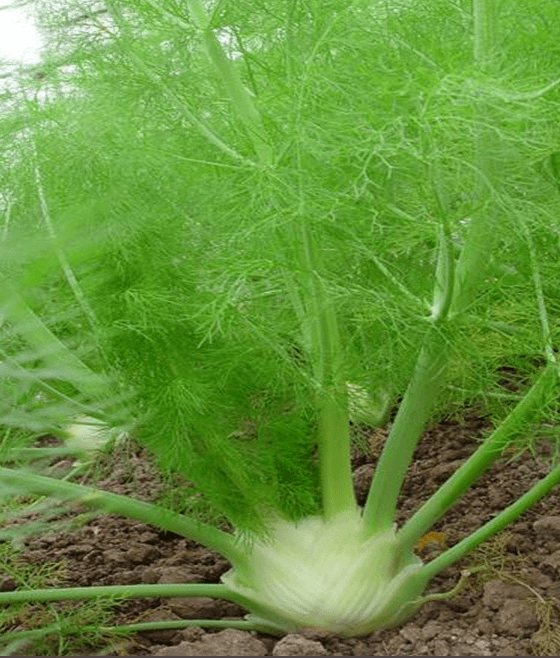
Fennel is a bushy plant with strong roots.
Fennel contains a large amount of vitamins (A, E, D, C, group B) and amino acids, which helps strengthen the body's defenses for a nursing mother. The plant is also rich in minerals (calcium, magnesium, potassium, iron, phosphorus, copper). Useful macro and microelements are necessary for a woman in the process of milk production, so eating foods and dishes that are saturated with all these substances is mandatory during breastfeeding.
Fennel has the following beneficial properties:
- helps cope with flatulence, colic and cramps in the intestines;
- protects the liver from the harmful effects of toxins and other substances;
- effective for bronchitis, because it helps to liquefy and remove sputum;
- has a calming effect on the nervous system;
- stimulates the production of the hormone estrogen, provided that tea with plant seeds is regularly consumed;
- has antifungal properties.
Even modern doctors do not argue with the effective action of fennel. For centuries, the seeds of this plant have been used by healers, healers and physicians.
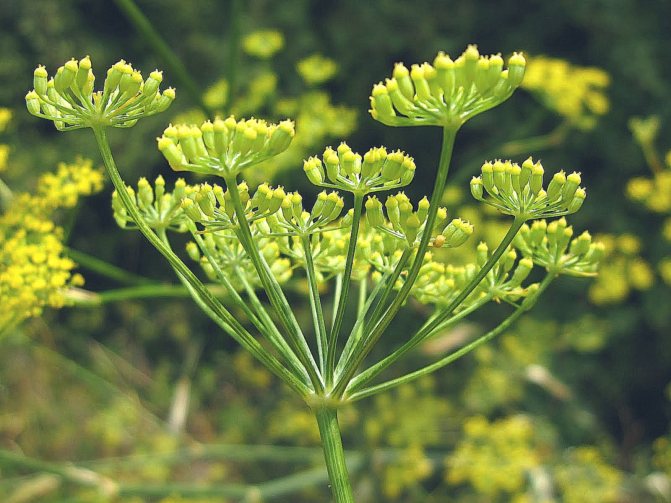
The main beneficial elements are found in fennel fruits
Why is the plant used to enhance lactation?
For a nursing woman, it is important that when drinking infusion or tea from fennel fruits, the production of the main lactation hormone, prolactin, is stimulated. Therefore, regular use of the plant not only helps to increase the production of nutrient fluid, but also supports the formation of milk during breastfeeding.

Fennel has been scientifically proven to increase milk supply in a nursing mother.
In many countries around the world, doctors have conducted studies on how the herbal tea of fennel fruits affects lactation: is there really a positive effect or is it just a placebo. Thus, in an experiment at the Moscow Center for Family Planning and Reproduction, 2 groups of nursing mothers participated, but only in one group did the women regularly drink tea from the seeds of the plant. Doctors recorded that those young mothers who drank it noted an increase in breast milk production by three and a half times.
After stopping the tea or infusion, the effect gradually decreases after five days.
Contraindications: when drinking fennel drinks can be harmful
Infusion and tea from fennel fruits are prohibited from being taken in the following cases:
- bearing a child. The plant helps to increase the tone of the uterus, and this is a direct threat of termination of pregnancy;
- epilepsy;
- disorders of the digestive system, accompanied by diarrhea;
- problems with the cardiovascular system.
Nursing mothers with low blood pressure are not recommended to drink drinks with fennel fruits.
Harm, side effects and allergies
If the drug is used too often, adverse reactions may occur.:
- diarrhea;
- low blood pressure;
- excessive gas formation;
- allergic skin reaction.
With cholelithiasis, there is a high probability of blockage of the biliary tract, resulting in intense pain in the right hypochondrium and attacks of vomiting.
Contraindications
A drink made from fennel seeds has few contraindications. Do not take the product if :
- individual intolerance to dill and fennel;
- cholelithiasis;
- children up to 2 weeks of age.
Overdose
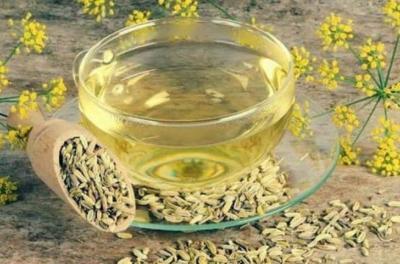
Dill water is a generally harmless drink; the unpleasant consequences of an overdose are rarely pronounced. Common symptoms of overuse:
- urge to vomit;
- diarrhea;
- spasmodic pain in the abdomen.
If these symptoms occur, taking the medicinal drink must be interrupted . After the condition has normalized, drinking water can be resumed, but with strict adherence to the recommended dosage.
Does dill water have any contraindications?
Even such a mild remedy as dill has contraindications. Dill water is absolutely not recommended for women who suffer from hypotension. Dill contains a substance called anetine, which has the property of dilating blood vessels. As a result, the pressure drops even more, which can lead to loss of strength, dizziness and even fainting. However, do not despair: a young mother whose blood pressure is constantly low will be helped by dill analogues that do not contain anetine: cumin, anise and fennel. A decoction of these plants is no less effective for preventing colic and improving lactation than dill water.

Dill water for a nursing mother is a real storehouse of vitamins, microelements and nutrients
Dill should be used with caution by a nursing mother who suffers from food allergies or has a history of cholelithiasis: dill water stimulates the production of bile. In other cases, you can safely drink dill water to stimulate lactation and to relieve your baby from colic.
Dill water has proven its effectiveness; it is recommended by many pediatricians as a natural and safe remedy to increase lactation and relieve the baby from unpleasant colic. Do not forget about contraindications and carefully monitor your health and psychological comfort!
Recipes with step-by-step instructions
It is not difficult to prepare a dill drink that stimulates lactation and eliminates colic in a baby. The positive effect will be stronger if you prepare and drink fresh water every day. Below are detailed recipes.
For lactation
There are two cooking options:
- Take a tablespoon of seeds, pour a glass of boiling water, stir. Leave the drink to infuse for 15 minutes in a container with a lid. Strain the finished product through cheesecloth or chintz.
- Take a tablespoon of fresh chopped dill and pour 0.5 liters of boiling water. Leave the drink to steep for 20 minutes. Strain before use.
Instead of seeds and greens of the plant, you can use pharmaceutical fennel oil. This is a highly concentrated extract, so when preparing the drink you must carefully follow the dosage of the components so as not to cause harm to the body. Take only 2 drops of oil per liter of water.
When a child has colic
In the first months after birth, babies often suffer from colic, because their digestive system is just developing, and enzymes for digesting food are synthesized in insufficient quantities. To improve the condition of their babies, mothers drink dill water .
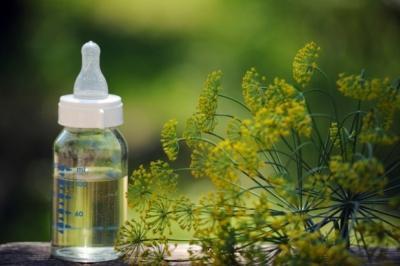
The preparation is simple. Pour a tablespoon of seeds into a glass of boiling water and leave for an hour. Drink 2 tablespoons of the strained drink before meals. To normalize the child’s condition, a 3-day course is enough.
If the course taken by the mother did not produce an effect, then it is recommended to give the drink to the child.
- For a baby up to a month old, up to 15 drops of the product are dripped onto the tongue 2 – 3 times a day.
- For an older child, add a teaspoon of the drink to a bottle with mother's expressed milk or artificial formula.
The medication continues until the intestinal condition improves.
We talked about the use of dill water for colic in a child here.
Fighting excess weight
Many women who have given birth struggle with the extra pounds gained during pregnancy. An effective aid in the fight against excess weight is dill water . It contains few calories (only 4.5 kcal per 100 ml), and contains substances that eliminate constipation and accelerate the burning of fat deposits.
To prepare a weight loss drink, take a tablespoon of seeds and pour a glass of boiling water. The drink is infused for 1.5 hours and filtered. You should drink the product instead of tea between meals.
Read about preparing dill water and its benefits and harms for women here.
Dill water for lactation
Unfortunately, many young mothers are faced with such a problem as lactation disorders; For various reasons (stress, poor nutrition, illness, medication), milk becomes less, it loses its fat content or disappears completely. Of course, in this case you can switch to formula, but it is known that breast milk contains all the substances necessary for the normal development of the baby. Dill water will help you cope with this problem when breastfeeding. It should be taken daily, half a glass half an hour before each feeding of the child.

Drinking dill water while breastfeeding will increase milk production and at the same time improve its quality
The healers give quite interesting advice: do not drink dill water, but hang a linen bag with dill seeds in the place where you breastfeed your baby. It is believed that even the smell of dill can stimulate lactation. You can add a little anise or ginger to the seeds. Whether to believe this advice or not is up to the nursing mother to decide.
We recommend reading: Fennel tea for nursing mothers
We must not forget about other factors that can negatively affect lactation. Often, milk production decreases due to insufficient nutrition: you should not go on a strict diet immediately after childbirth, trying to regain a beautiful figure.
It is better to postpone diets and exercise until after breastfeeding. In addition, milk production may be worse due to severe stress, so the relatives of a young mother need to protect her from psychological discomfort in every possible way.
You should not think that dill water is a panacea; the fight against insufficient lactation should be comprehensive.
Where to buy and for how much?
You can purchase dill water by order in pharmacies with a prescription department. You can also buy fennel extract, which you will have to dilute with water yourself according to the included instructions. Mothers also readily buy Plantex dill powder in filter bags from pharmacies for making tea.
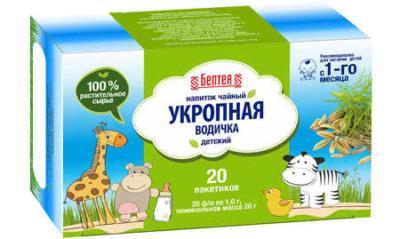
- Ready-made water in the prescription department will cost 200–250 rubles.
- The drug "Plantex" (30 sachets) costs 400 - 650 rubles.
- Cost of fennel extract (15 ml):
- in Moscow – 175 – 280 rubles;
- in St. Petersburg – 175 – 230 rubles.
Dill water relieves the baby from colic, helps the mother cope with excess weight, improve lactation, and restore the body after childbirth. The finished product is sold in pharmacies , but many mothers make the product themselves. The recipes are simple; you can use fennel seeds or ordinary dill.
If you find an error, please select a piece of text and press Ctrl+Enter.
How to make dill water for a newborn: a note for mothers
A newborn baby often experiences discomfort in the gastrointestinal tract. And all because the baby’s digestive system is not yet sufficiently developed, and is in the phase of active adaptation to mother’s milk or formula.
Because of this process, a month-old baby often suffers from bloating and excessive gas formation, which are accompanied by pain. This phenomenon is called intestinal colic.
Today, pharmacology offers special natural-based medications for colic that can be given to a child from the first days of life. But, as a rule, they are expensive, and the shelf life of such drugs after opening the bottle is short.
It is much easier and cheaper to buy special seeds and prepare dill infusion at home. But how to make dill water for a newborn so that it does not harm the baby and helps cope with the problem of painful colic?
Dill water: what is it?
Few people know that dill water is not an infusion of dill or dill seeds at all, it is a weak solution of fennel oil (0.1%). People called fennel dill, which is why the infusion from its seeds received the name dill water.
Fennel seeds have been used since ancient times to treat intestinal disorders. Dill infusion is equally safe for children and adults. You can make it yourself (there is nothing complicated about it), or you can buy ready-made water at the pharmacy. There is no difference in such means: both waters are equally useful for newborns.
The benefits of dill water
Dill decoction for babies has a number of beneficial properties:
- It helps improve digestion.
- Acts as a sedative.
- Helps reduce gas formation and facilitates the removal of gases.
- Reduces or completely eliminates spasms in the infant’s intestines.
- Has a positive effect on intestinal microflora.
- Improves appetite.
- It is an excellent prevention of constipation.
- It has antibacterial, diuretic, anti-inflammatory and anticonvulsant properties.
- Improves kidney function.
- It has a beneficial effect on the mother's lactation, enhancing it.
Dill decoction has a gentle effect on the intestines, relieving muscle spasms. As a result, the baby passes gas more easily, the pain subsides, and overall well-being improves. With regular intake of dill water, the newborn baby will become calmer, and colic will appear less frequently or disappear altogether.
How to prepare dill infusion: effective recipes
If you can’t buy dill water, you can make it yourself. There are many different recipes, let's look at a few of them.
- For this recipe you need to take 1 teaspoon of fennel seeds, grind them with a blender or coffee grinder, place them in a 250 ml glass. Pour a glass of boiled water into the prepared powder. Let it brew for 40-45 minutes, then strain the dill broth. How much medicinal water prepared in this way should I give my baby? It should be added to food or breast milk, no more than one spoon. If you have a newborn baby aged 2-4 weeks, the dosage is 15 drops. Store dill infusion for no more than a day.
- You can make a dill infusion by pouring a spoonful of crushed fennel seeds into a glass of cold water, then placing the container with the ingredients in a water bath. Bring the contents to a boil, simmer for a third of an hour. Let it brew for another 40 minutes, then strain.
- Dill water can be prepared using regular dill seeds. Take 1 tsp. seeds, pour boiling water over them (the amount of water is a standard glass) and leave for 1-2 hours. Strain the infusion using sterile gauze.
- For dill water from fresh dill, use chopped dill (1 tbsp) and 150 ml of water. Pour boiling water over the greens and leave the broth to steep for at least an hour. Strain the finished water in a convenient way.
- To make dill water similar to the one sold at the pharmacy, take fennel oil (0.05 g) and dilute it with a liter of water. This product can be stored for about a month in the refrigerator.
It is worth remembering that to prepare any of the recipes described, you need to take purified water and use only sterile and clean utensils. You only need to give your child a freshly prepared decoction or infusion - you cannot store homemade dill water for more than a day.
How much and how often can you give your child dill water?
It is allowed to give dill water to a baby undiluted, drinking it with a spoon or adding the decoction to a bottle with a mixture of mother’s milk. The properties of dill water are not lost due to this.
If a newborn often suffers from intestinal colic, you should give him dill water three times a day before meals, 1 teaspoon of fresh decoction. If the baby is breastfed, you need to give him the decoction from a spoon. It is better to solder artificial ones from a bottle.
For the first few days of regularly taking dill water, be sure to monitor the baby’s reaction: if any negative symptoms appear (rash, itching or redness of the skin, problems with stool, etc.), it is better to stop taking the decoction. Perhaps in this case it is better to use special medications. However, first you need to consult your pediatrician.
Colic is a phenomenon whose origin is still unclear to medical science. Accordingly, no one knows how to completely eliminate this problem.
And dill water is a good inexpensive remedy that will help a newborn baby cope with intestinal colic. However, you need to understand that this remedy only alleviates the baby’s condition and does not completely eliminate the pain syndrome.
As a rule, by the age of 4 months, intestinal colic will disappear on its own, and dill water will help you get through this period less painfully.
← Baby's first feeding Why doesn't a child eat anything: reasons for poor appetite in children →
by HyperComments
Other materials in the section
Source: https://jliza.ru/ukropnaya-vodichka.html
General recommendations:
1. Sleep should be at least 10 hours a day - night and day.
2. Walks in the fresh air for at least 2 hours.
3. Frequent latching of the baby to the breast from birth (at least 10 times a day), with mandatory night feedings.
4. Good nutrition and increasing the volume of fluid consumed to 1.5-2 liters per day (these are tea, soups, decoctions, milk, fermented milk products).
5. Shower-chest massage.
6. Drink hot green tea 30 minutes before feeding.
7. Take vitamins for nursing mothers.
It should be emphasized that the reaction to the use of the above drinks in mothers may be individual. In this regard, a nursing mother needs to choose the drink that suits her best and use it when lactation decreases. It is also necessary to pay attention to the baby’s reaction to your medications; allergies or intestinal disorders are possible (for example, honey, carrots, radishes, nuts)
A collection of recipes for increasing lactation based on Internet materials
While breastfeeding, a young mother needs to be very careful when introducing certain foods into her diet. She must remember that some foods increase lactation, some reduce it, and there are also those that cause bloating and increase gas formation in both mother and baby.
They disrupt digestion and cause accumulation of gases in the intestines, causing colic in newborns: cabbage (especially sauerkraut), radishes, cucumbers, grapes, beans, hot seasonings, whole milk, onions, radishes, peppers.
The following may cause diathesis in a child: strawberries, chocolate, citrus fruits, smoked foods.
Increase lactation: anise, fennel, caraway teas, barley decoction, barley coffee, blackthorn juice.
Reduce lactation: sage, parsley, mint
Spices are highly individual products. For example, anise and dill can have a calming effect, but can also cause allergies.
So it all comes down to determining a safe dose for your child. To begin with, mother should adhere to a more strict diet - porridge, vegetable soups, potatoes, boiled meat, weak tea.
After a few days, you can gradually introduce one new product at a time (from 50 to 100 g). If no negative reaction occurs within 24 hours, the daily dose can be increased.
Recipes to increase milk production
I would like to note right away that science has not proven the direct effect of all the recipes below on increasing lactation. Most likely, all these methods affect mothers purely psychologically. To achieve stable lactation, you must first of all follow the Basic Rules of Breastfeeding. If you feel like your milk supply is low, seek help from lactation consultants and breastfeeding support groups.
When I just started breastfeeding my son, I scoured the entire Internet looking for recipes to increase lactation. I collected them all in one file. Unfortunately, I have lost information about the sources, so if you find your own recipes here, I will be very happy to write down their authorship. Perhaps someone will find something useful for themselves here and will be pleased with the result when applied.
Decoction of dill seeds during pregnancy
It is better for pregnant women to consume dill seeds in the form of a decoction. This promotes rapid absorption of nutrients and the calming effect of essential oils on the emotional state. The product has a positive effect on the functioning of the digestive system.
Ingredients:
- dill seeds – 5 grams;
- water – 200 milliliters.
How to make and use:
- Pour water brought to a boil over the seeds in a thermos;
- Leave for at least an hour;
- Drink 100 grams twice a day, morning and evening. The course of treatment is 21 days.
Note: dill seeds contain many substances beneficial to the health of the body, however, during pregnancy, traditional medicine recipes should be used with caution. Before using herbal products, you should consult your doctor.

